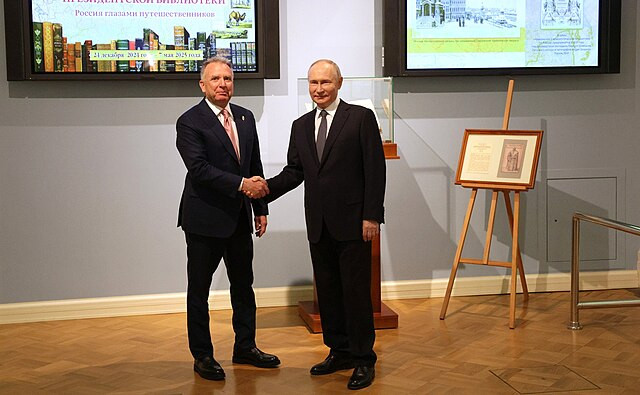U.S. envoy Steve Witkoff met Russian President Vladimir Putin for a three-hour closed-door session at the Kremlin on Wednesday, just two days before President Donald Trump's ceasefire deadline on the war in Ukraine is set to expire. The high-stakes meeting, confirmed by Russian state media and Kremlin officials, marks the latest attempt by the White House to broker a cessation of hostilities before triggering a new wave of sanctions.
The visit marks Witkoff's fifth trip to Moscow since Trump returned to office. He was greeted at Vnukovo Airport by Kirill Dmitriev, head of the Russian Direct Investment Fund, who accompanied him for a walk through Zaryadye Park before Witkoff's motorcade entered the Kremlin compound.
Kremlin foreign policy aide Yuri Ushakov described the discussion as "useful and constructive," noting that "some signals were transmitted" regarding Ukraine and "corresponding signals were also received from President Trump." Ushakov declined to disclose further details until Witkoff reports back to Washington.
The meeting comes against the backdrop of Trump's August 8 ceasefire-or-sanctions ultimatum. Last month, Trump warned that failing to reach a ceasefire agreement would result in secondary sanctions on countries that continue purchasing Russian oil and gas-particularly India and China, Russia's top energy clients.
On Tuesday, Ukrainian President Volodymyr Zelenskyy said he had a call with Trump to coordinate positions. "We exchanged assessments of the situation: The Russians have intensified the brutality of their attacks. President Trump is fully informed about Russian strikes on Kyiv and other cities and communities," Zelenskyy posted on X.
Since direct peace talks resumed in May, Russia has intensified aerial assaults, including a record-breaking 6,443 drones and missiles launched in July, according to the Ukrainian Air Force. At least 72 civilians were killed in Kyiv alone over recent weeks. Trump called the attacks "disgusting" and shortened the original 50-day deadline to just 10 days last week.
Though no breakthrough was announced Wednesday, Russian state media floated the idea of a limited moratorium on air strikes, a proposal reportedly suggested earlier by Belarusian President Alexander Lukashenko. Analysts, however, note that such a move would fall well short of Washington's demand for a full ceasefire.
"The visit of Witkoff is a last-ditch effort to find a face-saving solution for both sides," said Gerhard Mangott, a political analyst and member of a Western delegation that has met Putin. "I don't think, however, that there will be anything of a compromise between the two."
Putin, according to three Kremlin sources cited by Reuters, is unlikely to meet Trump's ceasefire demands, believing he holds the military advantage and sees his war goals as more vital than any diplomatic opening with Washington. "Russia will insist it is prepared to have a ceasefire, but (only) under the conditions that it has formulated for the last two or three years already," Mangott said.
Those conditions, according to Russian officials, include NATO halting its eastern expansion, Ukraine remaining neutral, protection for Russian speakers in Ukraine, and Western recognition of Russia's territorial gains. Zelenskyy has categorically rejected those terms, stating that Kyiv will never accept the annexation of its land nor give up its ambition to join NATO.
Meanwhile, tensions remain high across the warfront. On Wednesday, Zelenskyy said Russia targeted a gas pumping station in southern Ukraine, calling it a "deliberate and cynical blow" against winter infrastructure. Russia claimed the attack was on gas facilities supplying the Ukrainian military.





